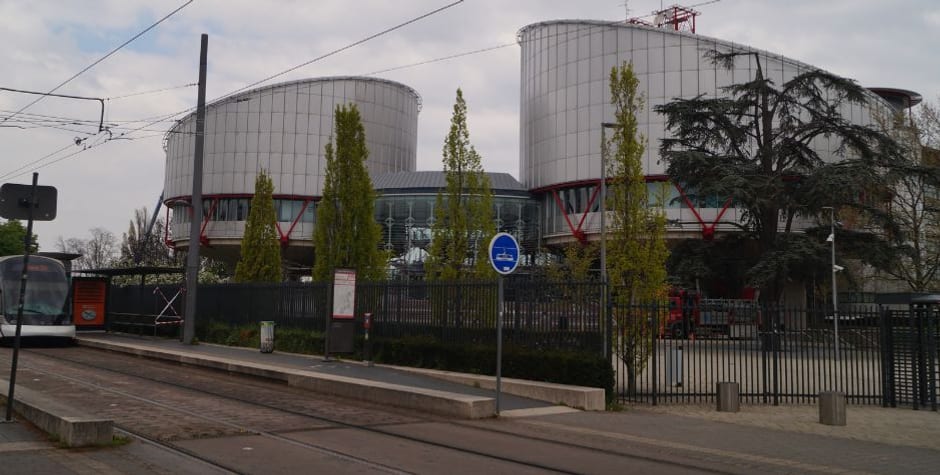Judge Georgios Serghides outlines the progressive vision of the ECHR in a few words and on the sidelines of the Simeonovi v. Bulgaria case of May 12, 2017:
The preamble to the [European Human Rights] Convention states that the Council of Europe’s aim is "the achieve a greater unity between its members and that one of the methods by which that aim is to be pursued is the maintenance and further realisation of human rights and fundamental freedoms." This consideration embodies the requisite dynamism and cultivates the idea of advancing human rights. Any lowering of the level of protection of human rights, or any setback of the kind characterised as “devolution,” is not only undesirable but is, I believe, beyond the scope of the Convention. Justice Oliver Wendell Holmes wisely stated that "greatness is not in where we stand but in what direction we are moving." The same applies to the future of human rights. I believe that the Convention ship must move forward and not backwards and that every time a case comes before the Court [European Court of Human Rights, hereafter ECHR], especially the Grand Chamber, such as the present case, a new voyage of the Convention ship begins, and the compass must always direct it effectively to its promise destination.
Since the Enlightenment, human rights have been at the heart of the ideal of progress. The international institutions founded in the post-war era set out to realize this ideal. In the United Nations Charter, the peoples of the world declared their determination to "promote the economic and social advancement of all peoples;" and set up commissions for "the advancement of human rights."
Any idea of progress implies the concept of a goal. The great texts of the United Nations aim to realize "the ideal of free human beings enjoying civil and political liberties and freedom from fear and want"[1]. The goal of human-rights progress is thus a limitless ideal to be pursued indefinitely according to one's changing idea of what it means to be human. Unlike the modern political order, whose legitimacy derives from the State and the people, the legitimacy of human rights, which succeeded it, is suspended from this ideal goal. In order to keep their promise and remain credible, bodies advocating for the protection and promotion of human rights must constantly move closer to this ideal. Human rights are thus part of a twofold dynamic of progress: in terms of the institutions that promote them and in terms of their object. This dynamic operates on several levels through the development of reason, knowledge of rights, and their recognition in time and space.
Development of reason
In its operations, the ECHR pursues an ideal of rationality by applying universal principles to specific situations in light of objective empirical data and through standardized reasoning designed on the scientific model. The ECHR can be described as a judgment-making machine, subject to quantitative and qualitative requirements. Its operation is so rational that there are plans to automate it using algorithms. The accumulation of this jurisprudence should progressively constitute a corpus whose coherence and universality would result directly from its rationality. The design of this vast normative edifice should escape the vulgar power of politics and be reserved for supposedly wise and disinterested expert judges like the ancient clerics. Thus, the corpus of human rights, like the Catholic or Orthodox magisterium, is conceived as unfolding in time and space in a homogeneous and continuous manner. The universality of this secular magisterium is facilitated by the establishment of a sustained dialogue with other bodies for the protection of human rights, to the point of forming a global network of institutions developing the same discourse and ideal.
Development of rights and freedoms
This "progress of human rights" is not only that of their "universal and effective recognition and observance" throughout the world, as evoked by the Universal Declaration, it is also that of their content, which is destined to increase indefinitely through the logical development of pre-existing rights.
The progress of human rights is commonly seen as the result of the combined progress of science and morality, translated into law by the mechanics of universal principles. These principles, such as equality and liberty, are so powerful that no tangible reality seems to resist them, to the point where the logic of rights progressively covers the whole range of human experience. Human rights are thus forced, by the necessity of their own logic, to actualize, develop and dissolve all obstacles to the ideal of the free man. Although this mechanism produces rational decisions, it may lack prudence in that the decisions are conceived at the level of abstract principles. Thus, the people may perceive these decisions as excessive and ideological, especially when the obstacles thence dissolved are constitutive of society.
The Court assumes the progressive perspective of human rights, declaring that it is "of crucial importance" that the Convention be "interpreted and applied" in a "dynamic and evolutionary" manner, in order to allow for the "reform or improvement"[2] of society. To this end, the Court sees the Convention not as a treaty set in stone, but as a "living instrument"[3] with flexible and extensible content to be interpreted "in the light of today's conditions"[4]. Thanks to this power of evolutionary interpretation, the European judge is able to liberalize certain practices and condemn others; in so doing, he realizes the ambition of forming a European constitutional court no longer subject to treaty law but one capable of crowning and dominating the European legal order.
Development over time
The progress of human rights is achieved over time, not only because time is necessary for man to conceive of and become accustomed to the extension of equality and his own freedom, but also because the accumulation of judgments would have the mechanical effect of refining and improving the magisterium of human rights. Thus, the time of human rights is not so much the time of justice - for whom time allows conflicts to be pacified - as the time of "progress of conscience."
Whether or not this historical progress is inevitable, it is up to bodies such as the ECHR to accompany and activate it voluntarily. With the meaning and direction of progress known, the mission of the ECHR would be to pave the way for the progress of society by condemning its shortcomings, but also encouraging its potential. To this end, it observes "current living conditions," "emerging changes"[5], and the evolution of mores, opinions, and comparative law. When it observes and appreciates a new trend in society, the Court will accompany it, gradually consolidating it by giving it the force of law, thus judging the present in the name of a desirable future.
This power is legal only in form; it is prophetic in nature. Talk of justice or injustice is meaningless if what was accepted yesterday is no longer accepted today in the eyes of the same Court and under the same Convention. In the progressive perspective, the criterion of justice is no longer respect for the law, but for the alleged sense of history. Justice is then relative, constantly contradicting and surpassing itself in a dialectical process. Every decision is a step forward, waiting to be overtaken by a new step forward. But every advance requires the condemnation of an innocent person because it retroactively punishes acts carried out under the empire and in compliance with the previous law. The Court admits that its jurisprudential reversals are not, it says, "in the interests of legal certainty, foreseeability of the law and equality before the law," but it nevertheless declares them necessary to maintain "a dynamic and evolutionary approach"[6]. The main difficulty for the Court lies in gauging the pace at which to impose this progress, without rushing the States too much. The Court admits "that it must not hasten to substitute its own assessment for that of the national authorities"[7] and grants them "a certain margin of appreciation in choosing the pace of adoption of the legislative reforms"[8] necessary to keep pace with this progress. The principle is well established: the Court sets the course and modulates, according to circumstances, the speed at which States must progress, like pupils.
Once progress has been made, it must be irreversible, which is why international human rights law lays down a principle of non-retrogression, whereby a State cannot withdraw the benefit of a right that has already been recognized.
***
[1] International Covenant on Civil and Political Rights, 1966.
[2] ECHR, Y.Y. v. Turkey, no. 14793/08, March 10, 2015. § 103.
[3] ECHR, Tyrer v. United Kingdom, no. 5856/72, April 25, 1978. This notion is borrowed from the U.S. Supreme Court, in Trop v. Dulles, 356 U.S. 86 (1958), March 31, 1958. This mode of interpretation is, in principle, specific to constitutions and not to international treaties.
[4] ECHR, Marckx v. Belgium, no. 6833/74, June 13, 1979, § 41; Tyrer v. United Kingdom, no. 5856/72, April 25, 1978, § 31; ECHR, Airey v. Ireland, no. 6289/73, October 9, 1979, § 26.
[5] ECHR, Vallianatos v. Greece [GC], no. 29381/09, November 7, 2013, § 84.
[6] ECHR, Bayatyan v. Armenia [GC], no. 23459/03, July 7, 2011, § 98.
[7] ECHR, Schalk and Kopf v. Austria, no. 30141/04, June 24, 2010, § 62.
[8] Ibid, § 205; ECHR, Aldeguer Tomás v. Spain, no. 35214/09, June 14, 2016. See also S. H. and others v. Austria [GC], no. 57813/00, November 3, 2011.















